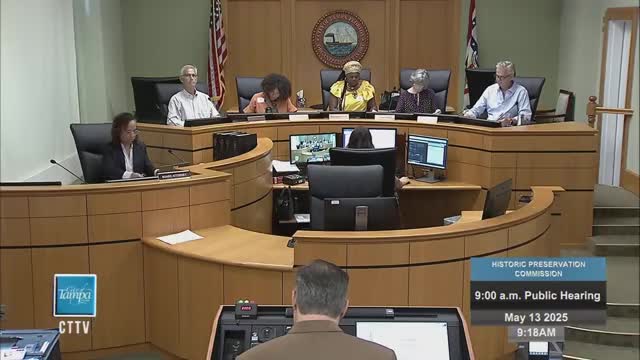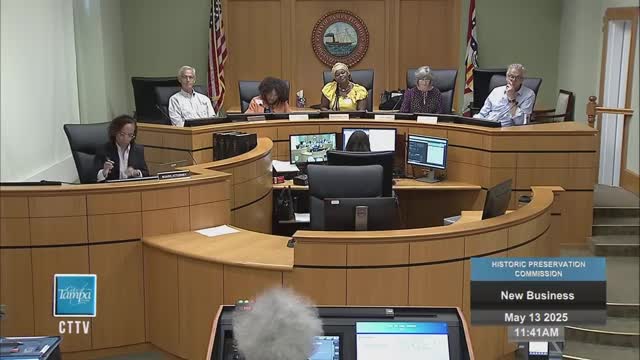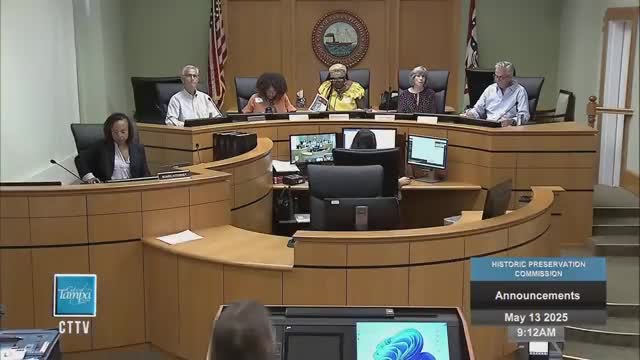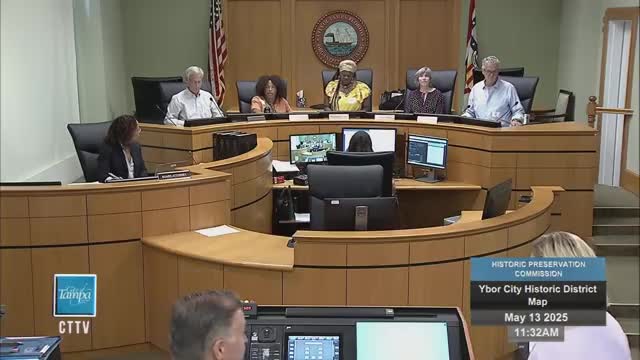Article not found
This article is no longer available. But don't worry—we've gathered other articles that discuss the same topic.

Tampa commission finds Davis Islands house eligible for local landmark designation, agrees owners demonstrated economic hardship after 2024 storms

Jackson House Foundation updates commission on easement, community engagement and RFQ; commission receives materials

Staff spotlights Giunta Homestead and Farm in Ybor City; property noted on local landmark inventory

